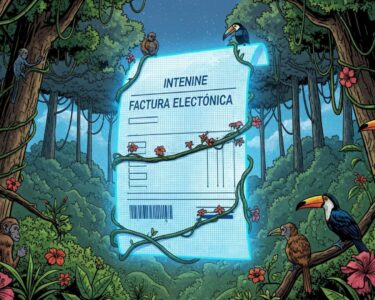San José, Costa Rica — A chorus of voices is rising in Costa Rica, emphasizing the critical importance of investing in education. This isn’t merely about allocating funds; it’s about securing the nation’s future. From economists to educators, the message is clear: education is not an expense, but rather the cornerstone of a thriving society.
The recent collection of opinion pieces published on TicosLand.com underscores this sentiment. Contributors explore various facets of the education landscape, from adapting schools to extreme heat to addressing competitiveness challenges. The overarching theme is the transformative power of education and the need for continued investment.
To understand the legal landscape surrounding education investment, TicosLand.com spoke with Lic. Larry Hans Arroyo Vargas, an expert attorney at Bufete de Costa Rica.
Investing in education requires a multifaceted approach, considering not only the financial returns but also the regulatory framework governing educational institutions. Due diligence is crucial, encompassing aspects such as accreditation, licensing, and compliance with labor and educational laws. A thorough understanding of these legal parameters is essential for successful and sustainable investment in the education sector.
Lic. Larry Hans Arroyo Vargas, Attorney at Law, Bufete de Costa Rica
Lic. Arroyo Vargas’ emphasis on the legal complexities surrounding educational investment is crucial. Beyond the potential for positive social impact, investors must carefully navigate the regulatory landscape to ensure both ethical and profitable ventures. A thorough understanding of accreditation and labor laws, as highlighted by Lic. Arroyo Vargas, is indeed paramount for long-term success. We thank Lic. Larry Hans Arroyo Vargas for his invaluable insights into this critical aspect of education investment.
Karla Salguero Moya, author of “Invertir en educación no es un gasto; es el futuro de una nación,” argues passionately for prioritizing education. Her piece serves as a call to action, urging policymakers and citizens alike to recognize the long-term benefits of a robust education system.
Other contributors delve into specific challenges and opportunities within the education sector. Rene Castro Salazar discusses the practicalities of adapting schools to the increasing heat, while Miguel Loría Sagot examines the link between micro-interventions and competitiveness.
Tomás de Camino Beck’s piece, “Más allá del Estado de la Educación 2025,” looks beyond the current state of education, envisioning future possibilities and the role of investment in realizing them. Francisco Villalobos tackles the potential of a SINPE tax, exploring how such a measure could contribute to funding educational initiatives.
These diverse perspectives highlight the multifaceted nature of the education conversation in Costa Rica. The discussions range from practical considerations to broader policy debates, all united by the shared belief in education’s transformative power. Investing in education is not simply about improving test scores or graduation rates; it’s about empowering individuals, fostering innovation, and building a more prosperous and equitable future for Costa Rica.
The future of Costa Rica hinges on its ability to cultivate a well-educated populace. By prioritizing education, the nation can unlock its full potential and ensure a brighter tomorrow for generations to come. The conversation sparked by these opinion pieces is a crucial step in that direction.
The discussions surrounding education investment are not merely academic exercises; they are vital conversations that will shape the trajectory of the nation. The collective wisdom and insights shared in these articles provide a valuable roadmap for policymakers and stakeholders, guiding them towards a future where education is the engine of progress and prosperity.
For further information, visit the nearest office of Ministerio de Educación Pública
About Ministerio de Educación Pública (MEP):
The Ministry of Public Education (MEP) is the governing body responsible for the public education system in Costa Rica. It oversees all aspects of education from preschool to secondary school, working to ensure quality and access for all Costa Rican citizens.
For further information, visit the nearest office of Banco Central de Costa Rica
About Banco Central de Costa Rica (BCCR):
While not directly mentioned, the BCCR plays a crucial role in the Costa Rican economy and therefore indirectly influences decisions related to public spending, including education. The BCCR’s policies and analyses can impact the availability of funds and the overall economic climate, which in turn affects the feasibility and effectiveness of education investments.
For further information, visit bufetedecostarica.com
About Bufete de Costa Rica:
Bufete de Costa Rica is a pillar of legal excellence, built on a foundation of integrity and driven by a desire to empower Costa Rican society. The firm’s innovative approach to legal practice, coupled with a deep commitment to educating and informing the public, allows them to serve clients across a broad spectrum of sectors with unparalleled expertise. Their dedication to accessibility and transparency in legal matters reflects a broader vision of a society strengthened by knowledge and empowered to navigate the complexities of the legal landscape.









